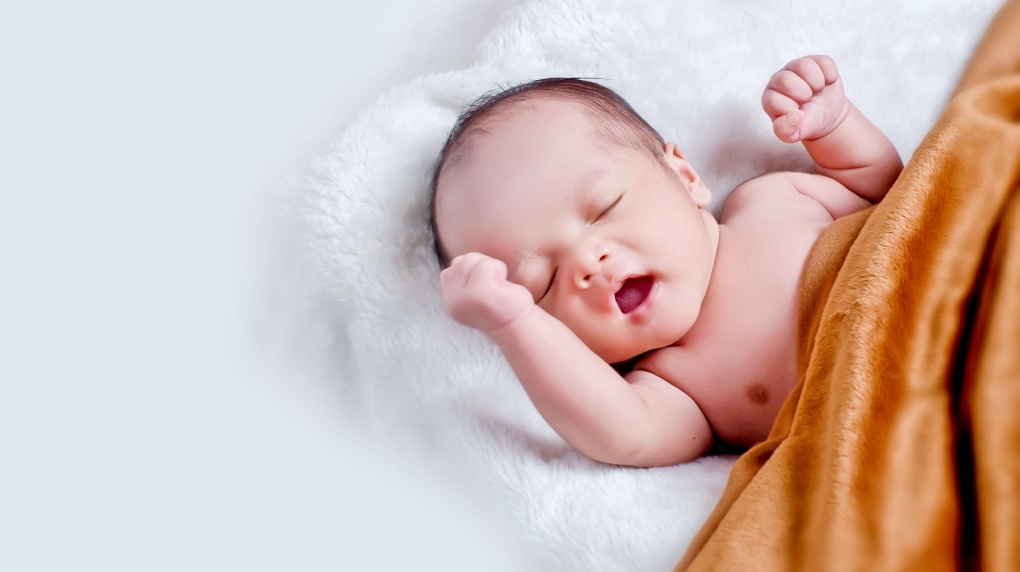
Quebec adopts sweeping family law reform with changes for non-binary people, kids' rights

The Canadian Press, June 8, 2022
Quebec City - People who do not consider themselves men or women will now be able to legally check the 'X' box on official documents provided by the Quebec government, without having to go through surgery.
People who identify as non-binary when giving birth to a child will also be able to identify themselves as the child's "parent," rather than the father or mother of their baby, if they wish.
That's all under the new rules brought in by Bill 2, passed Tuesday in the National Assembly.
The controversial bill, spearheaded by Justice Minister Simon Jolin-Barrette, was tabled in October 2021 as a major reform of Quebec's family law, which had not been updated for some 40 years, even though social mores have changed hugely since then.
The new law, which is sweeping and complex, deals with a host of often-delicate social subjects, and was originally intended to be even more comprehensive.
After protests from fellow legislators that there would not be enough time to complete the process before the National Assembly adjourns on June 10, the minister decided last week to withdraw two important parts of the bill: the rules of filiation and the regulation of surrogate pregnancies.
If he had not done so, there was a strong risk that the bill, a tome of more than 100 pages containing some 360 articles, would die on the order paper.
Jolin-Barrette also had no choice but to act now on the issue of gender identity and recognition of non-binary people. He had to comply with a court ruling, the Moore decision, which only gave him until Dec. 31, 2021, to do so.
He already had to request an extension of the deadline to June 17. Initially, Jolin-Barrette wanted to impose genital surgery on anyone wishing to have their gender designation changed on their official papers.
Faced with the ensuing outcry from the LGBTQ community, who said that this position would force transgender people to "come out" on official documents, the minister backed down and withdrew the controversial articles.
The Superior Court ruling, delivered by Justice Gregory Moore on January 28, 2021, struck down several sections of the Civil Code that were deemed discriminatory.
He ruled that Quebec had to eliminate all forms of discrimination related to gender designation in documents issued by the Directeur de l'état civil.
No one should be forced to identify themselves as male or female, the decision concluded. It was also necessary to add the possibility of self-identifying as a "parent," instead of father or mother, when writing the birth certificate of a child.
At all stages of the process, the opposition parties criticized Jolin-Barrette for taking too long to introduce his bill and for not allowing enough time for a serious clause-by-clause study.
They found this situation all the more objectionable, they said, given that the Minister of Justice is also the Government House Leader and therefore the one who sets legislative priorities and manages the agenda. They had less than four weeks to review the legislation.
Jolin-Barrette's handling of this file was "lamentable," according to Liberal MP Jennifer Maccarone.
In her final remarks before the bill's passage, she insisted that many in the LGBTQ community will be disappointed that many parts of the reform had to be set aside because of the way the parliamentary process was handled.
"They waited three and a half years to start the work," said PQ MP Véronique Hivon, who was also disappointed with the turn of events.
Along with the language reform recently brought in with Bill 96, the family law reform was one of the main bills orchestrated this year by Jolin-Barrette and by the entire government.
At the time of its adoption late Tuesday, the minister was absent from the House, needing to manage the study of another of his bills, Bill 34, on better access to justice, in another room.
The next government, which will be elected on October 3, will have to resume the whole process of dealing with the issues that have been set aside, in particular the sensitive issue of surrogacy.
Currently, agreements between surrogate mothers and intended parents have no legal standing. Opposition MPs have also expressed concern about the issue of the commodification of women's bodies.
The planned family law reform was also to include a review of the rules of conjugality, including the issue of the rights and obligations of common-law partners as compared to married couples.
The new, wide-ranging set of family laws, which had been anticipated for years, was based on a substantial report on the issue produced by University of Montreal law professor Alain Roy in 2015.
The report was shelved at the time by the Liberal government. It essentially focused on the child, his or her interests, and his or her absolute right to know his or her origins, regardless of the circumstances of his or her conception.
For example, whether the child is adopted or conceived through assisted human reproduction, their right to know their history will now be enshrined in the Charter of Human Rights and Freedoms.
Where a court decision may impact a child, Bill 2, which was passed on Tuesday, states that if there is a climate of family or spousal violence, this must be taken into account.
To ensure that all children are equal before the law, in the case of common-law couples with children, Bill 2 provides for an automatic "presumption of paternity," as for married couples.
Previously, if a man died during his wife's pregnancy, he could only be recognized as a parent by court order.
This report by The Canadian Press was first published in French on June 7, 2022.
![]()
Children seeing more of their fathers after divorce
The Sydney Morning Herald
February 3, 2005
Divorced fathers are Read More ..volved in their children's lives than conventional wisdom would have it, a new study shows.
It shows surprisingly varied and flexible care patterns among separated families, with "every other Saturday" contact giving way to Read More ..ild-focused arrangements.
Australian Institute of Family Studies research fellow Bruce Smyth has produced the first detailed snapshot of parent-child contact after divorce anywhere in the world. Published today in the institute's journal Family Matters, the analysis has implications for children's emotional and financial wellbeing.
Other research indicates children of separated families do best when they have multifaceted relationships, including sleepovers, sharing meals and doing schoolwork, with both parents.

Fathers 'have key role with children' after families split
The Telegraph, London, U.K.
Researchers say they found a direct relationship between children's behavioural problems and the amount of contact they had with their natural father.
The effect was more pronounced in single-parent families, particularly where the mother was a teenager. In such cases, children were especially vulnerable emotionally if they had no contact with their father.
Where's Daddy?
The Mythologies behind Custody-Access-Support
When 50 percent of marriages end in divorce and 43 percent of children are left with one parent, everyone is affected: uncles, aunts, grandparents, and friends, but mostly, the children. The devastation from our divorce practices is our most public secret scandal. Everyone whispers it, the whispers never acknowledged. It seems that as long as a villain can be created, society is content.
After three decades of research universally pointing to more productive options, why does Custody-Access-Support remain?
![]()
Research proves that fatherhood really matters

Hammering it home: Daughters need dads
USA TODAY, June 10, 2003
It's widely recognized that boys benefit from having dads around as role models and teachers about manhood.
But does having a father at home make much difference for girls?
But even in affluent families, girls become sexually active and pregnant earlier if they don't live with fathers, according to the largest and longest-term study on the problem. It was released in May.
Compared with daughters from two-parent homes, a girl is about five times more likely to have had sex by age 16 if her dad left before she was 6 and twice as likely if she stops living with her dad at 6 or older.
The study of 762 girls for 13 years took into account many factors that could lead to early sex, says Duke University psychologist Kenneth Dodge, the study's co-author. Still, there was an independent link between teenage sex and girls not living with their biological fathers.
Divorced Dads:
Shattering the Myths
Dr. Sandford L. Braver and Diane O'Connell
This is the result of the largest federally funded 8 year study of the issues confronting parents and their children in the United States.
Shattering the Myths. The surprising truth about fathers, children and divorce.
Fatherless America: Confronting Our Most Urgent Social Problem

by David Blackenhorn
Nearly one in 10 girls and one in 20 boys say they have been raped or experienced some other form of abusive violence on a date, according to a study released Sunday at the annual meeting of the American Psychological Association.
REPORT: Children Need Dads Too: Children with fathers in prison
Quakers United Nations Office
July 2009
Children are heavily impacted by parental imprisonment and greater attention should be given to their rights, needs and welfare in criminal justice policy and practice. Due to a variety of reasons such as mothers often being the primary or sole carer of children, complicated care arrangements, the likelihood of women prisoners being greater distances from home and a host of factors explored in detail in other QUNO publications, maternal imprisonment can be more damaging for children than paternal imprisonment. However, it is important not to underestimate the damage that paternal imprisonment can have on children.
Children with incarcerated fathers experience many of the same problems as those with incarcerated mothers, including coping with loss, environmental disruption, poverty, stigmatisation, health problems and all of the difficulties involved in visiting a parent in prison. It appears that there are also some difficulties specifically associated with paternal imprisonment, such as a higher risk of juvenile delinquency and strained relationships between the mother and child.
The numbers of children separated from their fathers due to imprisonment is far higher than those separated from their mothers due to the vast majority of prisoners being men (globally over 90 per cent of prisoners are male. To ignore this group would, therefore, be to neglect the vast majority of children affected by parental imprisonment. Read More ..


